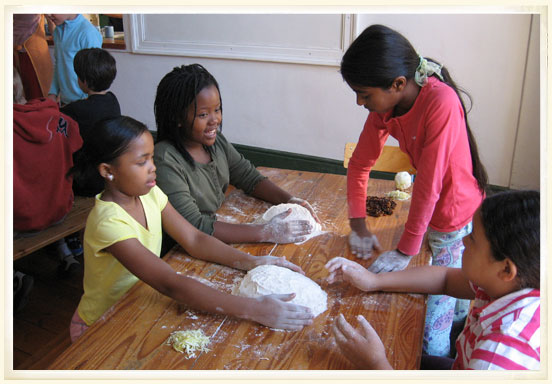
A Contribution to Education in South Africa
The Federation of Waldorf Schools wishes to engage as a major role player within the education sector in South Africa because we believe that children who learn to be at peace with themselves will think creatively and will be prepared to make a difference in the world.

Educational Aims
The plan that derives from our vision identifies five major objectives:
- Meeting the developmental needs of each individual child
- Fostering the health-creating processes within the child
- Enabling all children improve their quality of life and fulfill their potential
- Enabling students who leave school to take a responsible place in society as free individuals
- Equipping children with the skills and abilities they need to contribute to the renewal of society in South Africa and the world
- Maintaining a high level of professionalism in teaching practice
Nationally
- To enable the Waldorf movement to engage in the educational debate taking place in South Africa
- To influence educational policies of the country
- To bring about change at a grassroots level in the South African education sector to address social problems
In the Waldorf Education Sector
- To promote and assist Waldorf Schools
- To offer a high quality of Waldorf education to many more children
- To offer guidance, interest and encouragement to organizations which are members of the Federation and also to individuals who are active in Waldorf pedagogy
- To be the voice for Waldorf education in the country
- To support the annual National Teachers Conference, which promotes training and exchange for member institutions
Waldorf Education:
A Response to Change
Waldorf education is a schooling system that aims to prepare the student for life. At the same time, it prepares the students to meet the exit examinations with confidence and has a record of very good results. It is also a form of education that finds an harmonious accord with the people of South Africa and Africa. Our experience, when we present Waldorf education to parents and teachers from other cultures is to encounter a typical response:
“This is the education we need for our people. It brings us back to our own traditional ways.”


In November 2006 Kofi Anan stated:
“In the 21st century we remain hostage to our sense of grievance and to our feelings of entitlement…. Any strategy to build bridges must depend heavily on education, not just about Islam or Christianity but about all religions, traditions and cultures, so that myths and distortions can be seen for what they are.”*
*Ref. Speech of Kofi Anan in Istanbul on the occasion of the release of a report by a high-level research group under the title the Alliance of Civilizations referred to in Living Education, quoted Clouder. Christopher, A Journal for Steiner Waldorf Schools, Issue 2 Spring 2007
Central to the Waldorf curriculum is the presentation of stories and legends from the cultures of the world, which cultivate acceptance and understanding, such as Bible stories, myths of the ancient Norsemen, legends and stories about the way of life and beliefs in ancient India, Persia, Mesopotamia, Egypt Greece and Rome. This is a broad spectrum from which the child draws own images that can develop into an inner approach of trust, cooperation and tolerance in adult life.
Junior primary pupils in a baking activity related to the lesson theme
Since 1994, the dawning of a full democratic, apartheid-free South Africa, the National Department of Education has spent much effort outlining the needs of young people in South Africa and how to meet these needs in education. They have produced a very enlightened policy that has two major aims:
- The need to facilitate the transition of learners from school to the workplace and provide access to higher education
- The need to equip learners with the knowledge, skills and values necessary for self-fulfilment and meaningful participation in society
In light of the above it is interesting to consider some key principles that underpin this curriculum and methodology, which show that Waldorf Education is perfectly positioned to address the needs identified by the National Department of Education.

